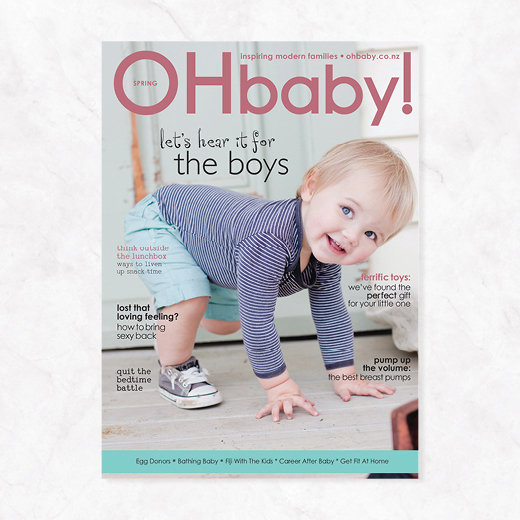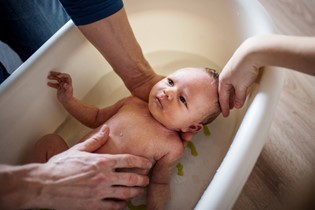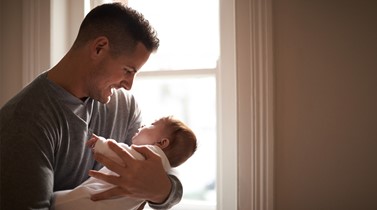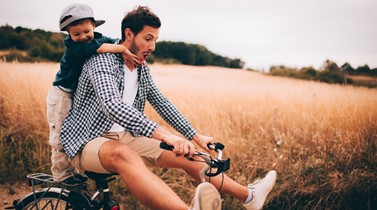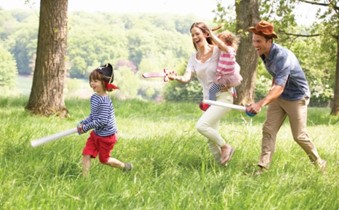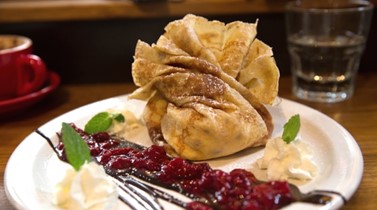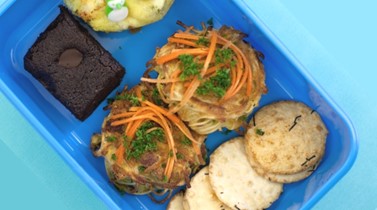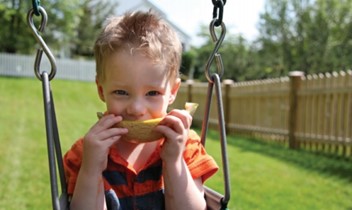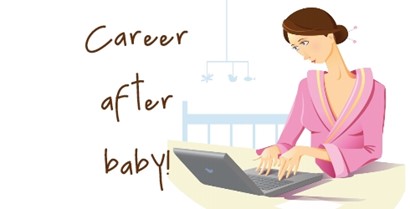Struggling To Get Pregnant: Egg Donation Explained

OHbaby! fertility expert Dr Richard Fisher argues the case for allowing legal changes so more Kiwi couples can become parents.
Within a generation, we have seen the science around infertility and fertility treatment improve dramatically. But with every scientific advance come important philosophical and ethical debates. Often, the law lags behind the reality for many couples, and makes an already stressful situation even more of a burden, emotionally and financially.
The donation of eggs is a perfect example. In the mid-1980s it was first raised as a possibility, but became possible in New Zealand only in 1991.
Egg donation requires one woman acting as an egg donor, with that egg fertilised by the recipient partner’s sperm and the resulting embryo place in the uterus of the recipient woman.
The number of women who have come to request the use of donor eggs has risen rapidly in the intervening years and we can expect those numbers to continue to rise.
But currently the law makes it difficult for Kiwi couples to fulfill their wish of becoming parents.
Increasing numbers
In 2012 around 60 couples flew from New Zealand to the United States to try to conceive using donated eggs. Another 20 or so left for various other countries such as South Africa, Spain, Thailand, Argentina and Romania for the same purpose. In New Zealand 40 more couples had treatment using donor eggs.
All of these couples shared the same goal — to receive an embryo which would implant in the woman’s uterus, to be nourished and grow and then for her to deliver a child like most other people. The child would not be entirely genetically theirs, but in every other way it would be. The conception will have been planned, the parents will have been well-informed and the pregnancy carefully managed. The children will be loved and brought up in the knowledge that their parents went to extraordinary lengths to have them.
The story always reads simply but it is usually just the end story of years of heartache and disappointment, matched only by a determination to reach the goal which, to most people, is simple — that of having a child to call their own.
Needs must
There are many reasons why a woman might seek another’s eggs. Premature ovarian failure is where, quite unexpectedly and usually before the age of 40, menopause occurs. Once the ovary has used up its initial allotment of eggs there is no way of creating more and the only alternative is to find another source.
Surgery, where ovarian cysts or tumours are removed, are another possible cause, as is damage by diseases such as endometriosis. Also, a woman may carry a genetic disease for which there is no simple diagnostic test in pregnancy and the decision to use donor oocytes (eggs) is a way of ensuring that a child will not be born with a particular disease.
Increasingly common now is the use of donor eggs in women whose ovarian reserve is compromised by age alone. Most women can reasonably expect to retain the ability to conceive into their early 40s but the chance reduces as time passes. As more women delay childbearing (the most common reason being they are unable to find a partner they wish to have a child with) the realities of their biological clock mean that with a small chance of conception each month, the use of donor eggs becomes a reasonable option. If the chance of having a baby with your own eggs with IVF is 5-10% per treatment cycle then using the eggs of a younger donor, with a much better chance of conception, can be a pragmatic resolution to the issue. The emotional context of the decision is never simple but, for many couples in time, pragmatism reigns over their initial plans.
Most likely donors
In New Zealand most recipient couples find their own donors who are often relatives, friends or associates. Some donors are recruited by advertising and such advertisements are becoming more common in many magazines. The law in New Zealand says that donation has to be altruistic and no payment may be made.
Getting eggs for donation requires the donor woman to undergo IVF stimulation with the aim of producing enough eggs to give the recipient a good chance of conception.
Fortunately, the stimulation protocols available now for donors are simpler than they used to be and for most donors the total time of injectable medications is around 10-12 days and the egg retrieval process, which is done under sedation as an outpatient, is simpler than before.
It is nevertheless an invasive process and, although physical risks are very small, they do exist. Careful counselling about the physical and emotional context of donation are an important part of the decision-making.
The model of altruism in New Zealand establishes the type of donor we tend to see. They are usually in their early to mid-30s and often already have children of their own. Although it is possible to use donors in their late 30s the chance of success following the use of their eggs is lower than with younger donors. Given the emotional trauma associated with trying to conceive, maximising the chances by using younger donors is the usual choice.
A donor of 35 is likely to give a recipient about a 50% chance of having a baby from a single cycle whereas at 30 it could be as high as 60%. Donors in their mid-20s will offer a chance of around 70% of the recipient having a baby, either from the initial fresh embryo transfer or from a subsequent transfer of frozen embryos resulting from the donation.
Heading overseas
 For couples who can’t find a donor locally, the next avenue is overseas. The model of egg donation in the USA is quite different from here. Although it is carefully managed in most US clinics, it is a commercial model where young women “donate” their eggs following the payment of a fee.
For couples who can’t find a donor locally, the next avenue is overseas. The model of egg donation in the USA is quite different from here. Although it is carefully managed in most US clinics, it is a commercial model where young women “donate” their eggs following the payment of a fee.
Many young college students partly fund their education costs by being egg donors. They may donate on a number of occasions to a number of different couples. Although flying to the USA is an expensive option (around $40,000 for a cycle of treatment) it is certainly one with very high success rates given the age of the donors.
In good clinics the donors are well-informed, intelligent young women who think carefully about their emotional and medical welfare. They make a decision based on their own community’s values that this is something they would wish to do and seem entirely comfortable with it. Certainly for recipient couples they are a godsend.
Other countries do have similar programmes, the largest donor egg programme in the world is in Spain. Their donors are paid expenses of up to €750 per cycle, not enough to make someone want to sell their eggs as a commodity but usually sufficient to cover any expenses associated with their donation. The Human Fertilisation and Embryology Authority in the UK has recently put out a consultation document on similar payments being available for egg donors in the UK.
International travel from New Zealand certainly allows access to egg donors but also means that New Zealand couples don’t come under the constraints of New Zealand law.
One of the guiding principles of the Human Assisted Reproductive Technologies Act is that children should have a right of access to information about their genetic background. Children born from donor eggs or donor sperm in New Zealand may access a special register to find out who their donors were. The purpose of the legislation is to offer knowledge and protection to the children. Not being able to provide enough donors here forces couples to move to other jurisdictions, which may not share the same views about identifiability.
If children’s rights are a central part of our law then we should do our best to ensure that donors are available in New Zealand. Making some payment, currently illegal in this country, will need serious consideration soon. It should be possible to ensure by regulation that donors are not exploited or their genetic material commodified and, at the same time, raising the number of women offering to donate eggs.
In the UK a programme of egg sharing has been developed where couples doing IVF can donate some of their eggs in return for a discounted cost of their IVF cycle. I am personally really uncomfortable about this process as it places the donor woman, someone who wants to conceive, at real risk of finding herself in a position where she may still not be pregnant but the person to whom she gave eggs is.
Internationally, a number of egg banks are now being established thanks to advances in techniques of egg-freezing, which has the added advantage of giving recipients flexibility over timing.
The technology also opens up the possibility of storing your own eggs when young and using them later if by chance conception proves more difficult as age passes — although that is really another story in itself.
The gift of life
New Zealand is lucky to have a culture of altruism. Women donate eggs to others because they want to help them in their goal of having a child. It is not a one-way street, however, as many donors view it as being one of the most satisfying things they have done in their lives.
As one of my donor patients said to me, “I am not rich, I have no special skills but I have been able to offer my friend a chance at having a child which she otherwise would not have had. My own children are the most precious things in my life and allowing her the possibility to have that same pleasure has been a most wonderfully satisfying experience for me.”
Clearly, egg donation is not for everyone. Both potential donors and recipients will have a myriad of backgrounds and views about the appropriate use of these technologies. Getting accurate information about the processes and making carefully considered decisions is critical.
Modern families are formed in many ways with many varied relationships within them. Children conceived from the use of donor eggs are an added part of this mix. The thought and effort needed to have them, from all parties involved in the process, ensures that they are among the children least at risk in our society despite their unusual start in life.
|
Dr Richard Fisher (CNZM, FRCOG, FRANZCOG, CREI) is Adjunct Professor in the Liggins Institute. He co-founded Fertility Associates in 1987 and is now New Zealand’s foremost spokesperson on infertility issues. In 2009 he was made a Companion of the NZ Order of Merit. For more information on fertility issues to go fertilityassociates.co.nz. |

AS FEATURED IN ISSUE 23 OF OHbaby! MAGAZINE. CHECK OUT OTHER ARTICLES IN THIS ISSUE BELOW
